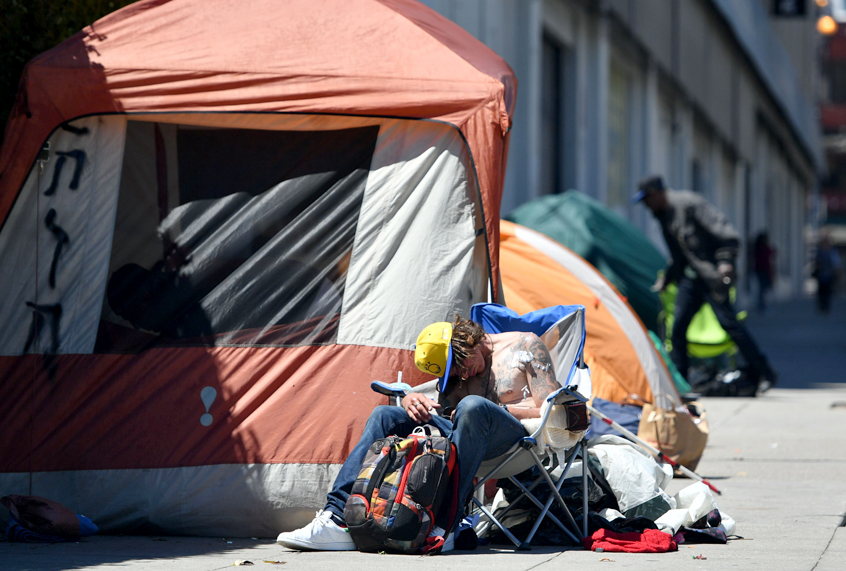Those in support of San Francisco’s homelessness tax, Proposition C, cheered when the final votes were tallied on Tuesday night. Indeed, around 60 percent of San Franciscan voters voted in favor of the measure that would raise nearly $300 million for homelessness initiatives each year by raising the gross receipts tax by an average of 0.5 percent for high-revenue businesses in the city.
However, opponents of the measure are already challenging the results, claiming it needs two-thirds of voter support due to the 1978 vote of Proposition 13 — an anti-tax measure supported by anti-tax conservatives at the time that mandated a supermajority for any state law related to taxation.
“Despite outspending the No on C campaign by at least four to one, the Yes on C campaign failed to earn the two-thirds voter support necessary for San Francisco to ever see a penny that Proposition C promised,” Jess Montejano, a spokesman for the No on C campaign, told the New York Times.
Montejano’s comments stem from a Supreme Court ruling last year which raised questions about whether tax increases proposed by voters needed two-thirds majority to pass.
This has trickled up to city legislators. According to the San Francisco Chronicle, Controller Ben Rosenfield sent a letter to Mayor London Breed and the Board of Supervisors.
In the letter, he states:
As you are aware, the City is currently in court to resolve whether two voter initiative taxes on the June 2018 ballot required approval by a simple majority or two-thirds of voters. Should Proposition C receive less than a two-thirds vote, it would likely become part of legal proceedings involving similar issues.
The Charter requires the City Controller to certify that funds are available to meet appropriations adopted by the Mayor and Board of Supervisors – a voter-adopted safeguard designed to ensure that the City does not enter into commitments only to find itself later without the means to pay for them.
Should Proposition C fall short of approval by two-thirds of voters – and consistent with my office’s treatment of the two taxes from June and other past significant tax lawsuits – my office would not be able to certify these funds given current legal uncertainties associated with the measure.
San Francisco Mayor London Breed — who opposed Proposition C — said she doesn’t “know what the answers are on the legalities.”
“There is still some uncertainty, but we can’t wait for Prop. C to move forward. The election is over, and now it’s time to address this issue, talk about real solutions,” she said.
Marc Benioff, the CEO of Salesforce, has urged the city to implement the measure despite legal challenges.
“There can always be legal challenges, but the reality is that The City needs to now go ahead and implement Prop. C — that’s The Will of The People,” he said on Twitter.
An eerily similar fight played out with a similar tax in Seattle. In June, Seattle city officials and big tech companies like Amazon, were up in arms about a modest tax that would help fund homeless services. In May 2018, Seattle’s City Council passed an “employee headcount tax,” which would have taxed companies in Seattle that make more than $40 million a year at a rate of $275 per employee. That funding was to be allocated to homeless shelters, affordable housing and public health services.
In June, the city repealed the ordinance, motivated by a referendum led by the No Tax on Jobs Coalition. Amazon was a lead contributor to the campaign. That happened after Amazon had halted construction planning on a new downtown Seattle tower before the first vote on the headcount tax — a move that was widely seen as a threat.

